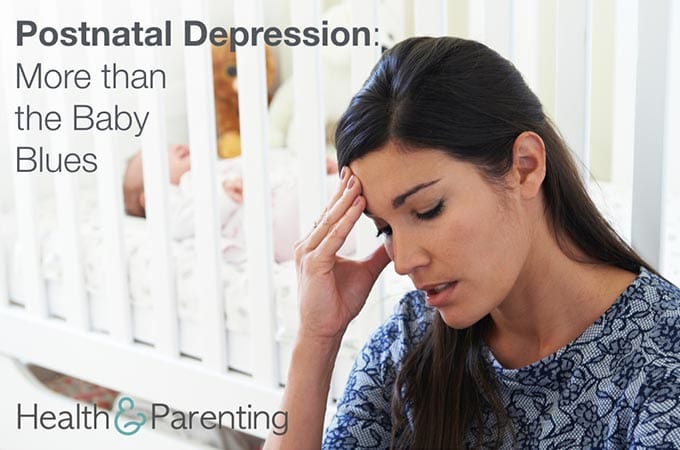Many new mums experience the ‘baby blues’ within a few days of giving birth. After the initial oxytocin-induced natural high of meeting your baby for the first time, the baby blues can come as a bit of a shock. One minute you are over the moon, truly and utterly in love, and the next minute you are sobbing over the sink because your partner bought the wrong type of washing up sponge. It may feel a bit like you’re losing your mind; but don’t worry, the baby blues are a common postpartum symptom, and usually nothing to worry about.
What causes the baby blues?
Two to four days after giving birth, your hormone levels rapidly drop, and this is thought to be one of the causes of the baby blues. During this time, there are also chemical changes occurring, and new hormones being released to trigger bonding and milk production. That’s a lot happening at once, so it’s no wonder you’re left feeling a bit drained.
On top of that, you’re exhausted after the birth, and you’ve just been handed this wonderful, perfect little bundle who probably doesn’t sleep for very long. It can be a very scary feeling when you leave the hospital for the first time, and you realise you are in charge of a baby. It’s easy to worry that you’re under-qualified for the job. Add to this breastfeeding problems, birth recovery, the cries of a newborn baby, and the fact you’re too tired to shower. Anyone would be feeling a bit weepy, even without the hormonal changes.
Symptoms of the baby blues
As many as 80 percent of new mums experience the baby blues. Possible symptoms include:
- weepiness
- anxiety
- irrational worry about your new baby
- irritability
- inability to concentrate
- feeling emotional
The baby blues will disappear by the time your baby is 10 days old. If you are still feeling low after that time, you should speak to your healthcare provider.
Battling the baby blues
The baby blues isn’t an illness, and there’s nothing you can do to ‘cure’ it. All you can do, is try to relax, take things easy, and wait for the blues to pass. The following tips may help you to minimise the impact of the baby blues:
- rest – get as much rest as possible. Easier said than done with a new baby in the house, but feeling overtired can heighten your emotions and leave you feeling worse.
- let it out – if you need to cry, cry. You might feel better after a good long weep. Bottling things up, and refusing to talk, can make your problems seem bigger and scarier than they really are.
- me time – it is so hard to get me time during those first few weeks, but try to give yourself some time to unwind. Run a nice warm bath, and have a soak for an hour or so. Leave the door unlocked though, because chances are the baby will want a feed as soon as you sit down.
- visitors – keep your visitors to a minimum, and don’t be afraid to cancel on people if you’re not feeling up to seeing them. Your mental health and wellbeing are important, so feel free to take some time to hibernate with your new family.
- talk – talk to your partner, your best friend, your mum – whoever you need to talk to to feel better. Let them know how you’re feeling, just talking can leave you feeling so much better.
Written by Fiona (@Fiona_Peacock), mother, writer and lover of all things baby related.
This information is not intended to replace the advice of a trained medical doctor. Health & Parenting Ltd disclaims any liability for the decisions you make based on this information, which is provided to you on a general information basis only and not as a substitute for personalized medical advice. All contents copyright © Health & Parenting Ltd 2016. All rights reserved.











